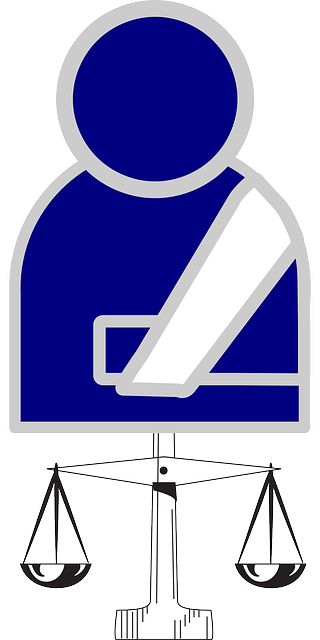Vicarious liability laws hold Connecticut spas accountable for employee actions, especially massage abuse or misconduct. Spas and therapists must balance therapy with strict boundaries to prevent emotional distress and legal issues. Management is responsible for safety through training, policies, insurance, and reporting systems. Background checks, consent education, and open dialogue are key strategies. Massage abuse attorneys in Connecticut specialize in spa malpractice cases, offering guidance, investigating incidents, and helping victims seek compensation.
In Connecticut, spas and their management face significant legal responsibilities regarding vicarious liability, especially concerning massage therapists. This article explores the intricate web of legal obligations that spas must navigate to protect clients from potential massage abuse. We delve into Connecticut’s unique framework, focusing on scenarios where therapists cross professional boundaries. Additionally, we examine strategic measures for client safety, the role of dedicated massage abuse attorneys in Connecticut, and how these professionals ensure justice for victims.
Understanding Vicarious Liability in Connecticut Spas

In the realm of Connecticut spas, vicarious liability is a crucial concept that dictates the legal responsibility of businesses for the actions of their employees. When it comes to massage abuse or any form of misconduct by spa staff, understanding this liability is essential. If a client experiences harm or suffering due to an employee’s negligence or intentional acts, the spa may be held accountable under vicarious liability laws.
This legal principle asserts that employers are liable for the torts committed by their employees during the course of their employment, even if the employer wasn’t directly involved in the act itself. In the context of massage therapy, this means that if a client is abused or harmed during a massage session, they may seek compensation from the spa through massage abuse attorneys Connecticut, as the spa could be considered responsible for the employee’s actions.
When Massage Therapists Cross Boundaries

In the professional setting of a Connecticut spa, massage therapists operate within a delicate balance. Their role involves providing therapeutic relief through touch, yet maintaining clear boundaries is paramount to prevent any form of abuse or misconduct. Massage therapy, while beneficial, carries risks if not executed ethically. Therapists must be vigilant to ensure their actions remain within professional limits, protecting both clients and their own reputations.
When boundary lines blur, it can lead to legal complications. Connecticut massage abuse attorneys often handle cases where therapists have crossed ethical boundaries, resulting in client harm. These situations may include inappropriate physical contact, sexual advances, or exploiting a client’s vulnerability. Such incidents not only cause emotional distress but also expose spas and therapists to liability. Awareness of professional ethics and clear communication with clients are key measures to mitigate these risks.
Legal Obligations of Spa Management

Spa management in Connecticut has a legal obligation to ensure the safety and well-being of its clients. This includes implementing robust policies and procedures to prevent any form of massage abuse, harassment, or misconduct by employees or third parties. Regular training sessions for staff on customer service, ethics, and boundaries are essential. Management must also create an open and transparent reporting system, encouraging clients to voice concerns without fear of retaliation.
Furthermore, Connecticut spas should have comprehensive insurance coverage, including liability protection, to safeguard against potential claims related to injuries or massage abuse. Engaging reputable massage abuse attorneys in Connecticut can help establish and maintain fair practices, ensuring the spa’s legal obligations are met and fostering a secure environment for all visitors.
Client Safety and Abuse Prevention Strategies

Client safety is paramount in the spa industry, especially as massage therapy involves intimate physical contact. Connecticut spas must implement robust abuse prevention strategies to safeguard clients from any form of misconduct or harm. This includes thorough background checks on employees, regular training on consent, privacy, and professional boundaries, as well as establishing clear reporting procedures for any suspicious behavior.
Additionally, having policies in place that promote an open dialogue between clients and staff about expectations and concerns can deter potential abuse. Employing qualified massage abuse attorneys in Connecticut can also provide specialized guidance and support to spas, ensuring they maintain a safe environment. Regular reviews of these measures are essential to keep up with evolving best practices and legal standards, thus protecting both the business and its clientele.
Role of Massage Abuse Attorneys in Connecticut

In the event of massage abuse or malpractice, individuals affected in Connecticut have a crucial ally in Massage Abuse Attorneys. These legal professionals specialize in navigating complex cases involving spas and wellness centers, ensuring that victims receive the justice they deserve. Their expertise lies in understanding state laws and regulations pertaining to health and safety standards in spas, which are essential in proving liability for any negligent or abusive practices.
Massage abuse attorneys play a pivotal role in holding Connecticut spas accountable. They possess the knowledge and skills to investigate incidents, gather evidence, and construct compelling cases. By doing so, they empower victims to take legal action, seeking compensation for physical, emotional, and psychological injuries caused by massage therapists or spa facilities. This process not only provides financial restitution but also sends a clear message that such misconduct will not be tolerated in the state’s wellness industry.






